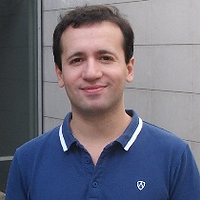Carbohydrate-Based Strategies in Antimicrobial Research
A special issue of Antibiotics (ISSN 2079-6382).
Deadline for manuscript submissions: closed (30 April 2022) | Viewed by 4105
Special Issue Editor
Interests: organic chemistry; medicinal chemistry; carbohydrate and nucleos(t)ide chemistry; bioactive molecules; enzyme inhibitors; anticancer agents; antimicrobial agents; anti-Alzheimer’s agents
Special Issues, Collections and Topics in MDPI journals
Special Issue Information
Dear Colleagues,
Among the therapeutic opportunities that carbohydrate-containing molecules and their analogs have provided, their antimicrobial potential has been a focus of intense research, encouraged by the various compounds of these classes approved as antibiotics or as antiviral or antiparasitic drugs. Moreover, the threat of antimicrobial resistance, which remains a major healthcare problem, hindering the ability of drugs to combat microorganisms that cause severe infections, necessitates the discovery and exploitation of novel agents that display alternative mechanisms of action. The relevance of glycostructures at the surfaces of pathogenic microbes for recognition and adhesion, their presence as essential constituents of bacteria and viral envelopes, as well as their role in microbial proliferation make them unique targets for the development of therapeutic approaches using carbohydrate derivatives. In this context, we welcome in this Special Issue contributions illustrating the importance of this topic in antimicrobial therapy research, highlighting recent findings.
Dr. Nuno Manuel Xavier
Guest Editor
Manuscript Submission Information
Manuscripts should be submitted online at www.mdpi.com by registering and logging in to this website. Once you are registered, click here to go to the submission form. Manuscripts can be submitted until the deadline. All submissions that pass pre-check are peer-reviewed. Accepted papers will be published continuously in the journal (as soon as accepted) and will be listed together on the special issue website. Research articles, review articles as well as short communications are invited. For planned papers, a title and short abstract (about 100 words) can be sent to the Editorial Office for announcement on this website.
Submitted manuscripts should not have been published previously, nor be under consideration for publication elsewhere (except conference proceedings papers). All manuscripts are thoroughly refereed through a single-blind peer-review process. A guide for authors and other relevant information for submission of manuscripts is available on the Instructions for Authors page. Antibiotics is an international peer-reviewed open access monthly journal published by MDPI.
Please visit the Instructions for Authors page before submitting a manuscript. The Article Processing Charge (APC) for publication in this open access journal is 2900 CHF (Swiss Francs). Submitted papers should be well formatted and use good English. Authors may use MDPI's English editing service prior to publication or during author revisions.
Keywords
- carbohydrates
- nucleos(t)ides
- antibacterial agents
- antiviral agents
- antiparasitic agents
- carbohydrate-protein interactions
- lectins
- cell-pathogen adhesion
- drug design
- synthesis






